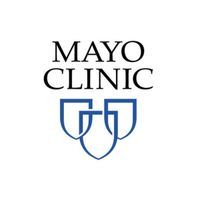
Percept PC Deep Brain Stimulation System Gets Go-Ahead

The Medtronic device is the only DBS system that is eligible to be used for both 3T and 1.5T full-body MRI scans, with the first implant procedure scheduled at Mayo Clinic.
Bryan Klassen, MD
The FDA has approved Medtronic’s Percept PC deep brain stimulation (DBS) system for the treatment of patients with neurologic disorders associated with Parkinson disease, essential tremor, dystonia, epilepsy, or obsessive-compulsive disorder (OCD).1
According to the manufacturer, the system uses its BrainSense technology to chronically capture and record brain signals while delivering therapy, making it the first and only such device with this ability. Physicians using the Percept PC device can track those signals to then correlate them to their patient’s symptoms, adverse events (AEs), or medication intake.
“Our goal is for patients to regain independence, and we know that DBS can significantly improve motor function in people with Parkinson’s disease compared to standard medication alone,” said Bryan Klassen, MD, neurologist, Mayo Clinic. “We can now more precisely tailor therapy to the individual needs of each patient based on data from neuronal activity.”
Klassen’s institution, Mayo Clinic, will be the first in the United States to implant the newly approved device. It previously received a European CE mark of approval in January of this year.2
Benjamin Walter, MD, MBA, section head, Movement Disorders; medical director, DBS Program; and associate professor of neurology, Cleveland Clinic Lerner College of Medicine, told NeurologyLive that this system offers "a very different paradigm-shifting innovation, and this is just the beginning," noting that its brain signal sensing technology is a big step forward.
"For example, in Parkinson disease, beta band LFPs correlate with increased parkinsonian symptoms. Dyskinesia can also be tracked with other signals," Walter explained. "Right now, the device will produce a digital diary telling the provider when the patient is under good control or indicating when they may need more or less therapy. This can be used to adjust their therapy or medication but it also has two tremendous implications for the near future. In the future, this should lead to closed-loop stimulation where the brain signals actually trigger automatic dynamic changes in the patients' neurostimulation to adapt to their state and need. Additionally, this provides a platform for much more discovery in this space as many patients should eventually have this technology in their DBS system."
READ MORE:
Medtronic noted that its Percept PC device is, additionally, the only DBS system that is eligible to be used for both 3T and 1.5T full-body magnetic resonance imaging (MRI) scans. As well, it offers a smart battery to allow the system to personalize the prediction of its remaining battery life, which Medtronic noted provides “elevated peace of mind while planning for device replacement.” This battery longevity is improved compared to the company’s other neurostimulator device, the Activa PC. As well, the Percept device is 20% smaller and thinner.
The device also offers low pulse width, and an Enhanced Patient Programmer function, which utilizes a user-friendly, custom-configured Samsung mobile device that allows patients to manage their therapy. Medtronic noted that the system was designed with the future of DBS in mind, and it will offer software upgrades to keep up with advances in its use.
“With movement disorders like Parkinson’s disease, even sharing a meal and holding utensils can be a challenge,” said John L. Lehr, president and chief executive officer, Parkinson’s Foundation. “We’re excited by new treatments and clinical advancements that let people with Parkinson’s live fuller, more complete, lives.”
The Percept PC device is compatible with lead model 3387 and lead model 3389 for movement disorders and epilepsy, as well as lead model 3391 for psychiatric disorders. It works with the extension model 37086; the clinician programmer model CT900 tablet with clinician programmer software application A610, and communicator model 8880T2; and the DBS Patient Programmer Model TH91D with patient programmer software application A620.
Medtronic DBS Therapy is contraindicated for those who are unable to properly operate the neurostimulator and, for patients with Parkinson disease and essential tremor for whom test stimulation is unsuccessful.
REFERENCES
1. FDA Approves First-Of-Its-Kind Percept™ PC Neurostimulator with BrainSense™ Technology [press release]. Dublin, Ireland. Medtronic. June 25, 2020. Accessed June 25, 2020. globenewswire.com/news-release/2020/06/25/2053361/0/en/FDA-Approves-First-Of-Its-Kind-Percept-PC-Neurostimulator-with-BrainSense-Technology.html
2. Medtronic Receives CE Mark Approval for the Percept™ PC Neurostimulator DBS System with BrainSense™ Technology [press release]. Dublin, Ireland. Medtronic. January 9, 2020. Accessed June 25, 2020. newsroom.medtronic.com/news-releases/news-release-details/medtronic-receives-ce-mark-approval-percepttm-pc-neurostimulator
Newsletter
Keep your finger on the pulse of neurology—subscribe to NeurologyLive for expert interviews, new data, and breakthrough treatment updates.










